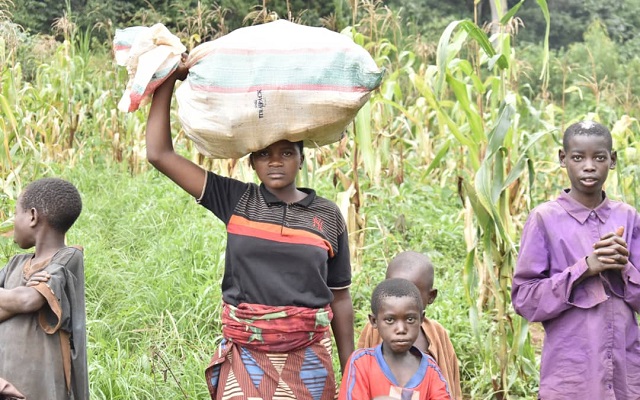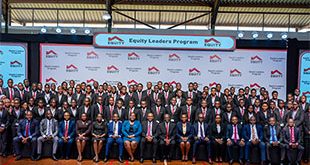
Continental lender recently introduced the Emergency Agricultural Production Project in the East African nation
BURUNDI | RONALD MUSOKE | For many Burundian smallholder farmers, the bumper maize harvest they are currently witnessing is all due to the intervention of a project initiated by the African Development Bank Group (AfDB) which offered them hybrid, climate-resilient seeds and other forms of support.
Several smallholder farmers who are organized in cooperatives recently told a visiting delegation from the Burundian Ministry of Environment, Agriculture and Livestock and the AfDB that “they are delighted with the season’s harvest.”
Marie-Thérèse Nahabaganwa, the head of the Tsindinzara (Combating Hunger) cooperative that works on about 200 hectares in the Muhara and Kagera–Ruhohera valleys, said her group received six tonnes of hybrid maize seeds, agricultural inputs and technical support and they now expect yields of 800 tonnes of maize.
“We owe all these exceptional yields to the efforts of our local government combined with support from projects financed by the African Development Bank,” said Nahabaganwa.
Willy Ndoricimpa, a member of the cooperative, was particularly happy with the awareness sessions that were held on land use. “We didn’t initially think that we’d be able to make a profit by pooling our portions of land,” he said, “But now we feel more than satisfied because, well, my share of the harvest will be 500kgs, unlike before when I barely harvested 50 kilos of maize.”
Ndoricimpa said he intends to use part of his harvest to feed his family and would sell another part to increase his livestock.
Emmanuel Niyungeko, the Permanent Secretary of Burundi’s Ministry of Environment, Agriculture and Livestock alongside the project managers and the African Development Bank visited the provinces of Kayanza and Kirundo at the beginning of this year (January 2-5) to see the results of the projects funded by the Bank.
“We have come to congratulate you on agreeing to pool your land,” said Niyungeko, “The harvest you have just made is totally in line with the government’s vision of increasing agricultural production so that every mouth has food, and every pocket has money.”
Food security and nutrition
In order to boost Burundi’s food security and nutrition, the AfDB recently introduced the Burundian Agriculture and Livestock Value Chains Sustainable Development Support Project and the Emergency Agricultural Production Project.
The Burundian project was part of the AfDB’s African Emergency Food Production Facility, a short-term intervention intended to raise the production of wheat, maize, rice and soy bean to compensate for the supply deficit that arose due to the Russia-Ukraine War.
The AfDB invested US$ 1.5bn in the facility for smallholder farmers in member countries. The facility focused on three areas; delivering certified seeds, fertilizer and extension services to 20 million farmers using innovation as well as internet and communication technology platforms as well as supporting post-harvest management and market development. It also focused on providing financing and credit guaranteed for the large-scale supply of fertilizer to wholesalers and aggregators. The facility also supported policy reform facilitating modern inputs getting to farmers, including strengthening national institutions overseeing input markets.
In July 2022, the Bank granted Burundi US$5.4 million to fund the Emergency Agricultural Production Project. In August 2023, under the second phase of the project, 571 tonnes of selected hybrid maize seeds were provided to 195,000 households belonging to cooperatives in 14 provinces of the country including Kayanza and Kirundo. In addition to the technical support that has greatly revolutionized the agricultural sector in this northern region, the project has also developed marshlands for farmers.
The African Emergency Food Production Facility aims to increase food production by 30% through 2024 including scaling up wheat production with heat-tolerant varieties; scaling up maize production with water-efficient maize; scaling up rice and soybean production as well as creating information and communication technology-based systems that deliver transparency and inclusion support to farmers, especially for women and youth.
The AfDB is working with fertilizer manufacturers, seed companies, commodity exchanges, large aggregators, and regional member countries to deliver 3.54 million tonnes of fertilizers and 383,875 tonnes of certified seeds to smallholder farmers during the same period in what it said was a short-term response around Africa’s next four crop production cycles. The project is intended to produce 37.6 million tonnes of these staple food crops– an increase of about 30% in local production.
 The Independent Uganda: You get the Truth we Pay the Price
The Independent Uganda: You get the Truth we Pay the Price



